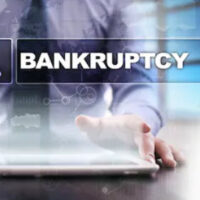What Types of Bankruptcies Are Available for South Florida Businesses?

Businesses, like individuals, can struggle immensely with debt, especially in Florida when the business enters the off-season months or when varied factors affect market fluctuation. Sometimes those factors are short-term and temporary (such as the economic effects of a hurricane in South Florida) while others are longer term (such as increasing interest rates that result in consumers spending less money on credit). Regardless of the reason for a business’s financial struggles, a form of bankruptcy may be able to provide the relief that the owner or owners need.
Business bankruptcies, similar to individual bankruptcies, can be liquidation or reorganization bankruptcies. With a liquidation bankruptcy, all remaining business assets will be liquidated in order for creditors to receive as much of the debt they are owed as possible, and the business will permanently close. With a reorganization bankruptcy, the business has options for restructuring or reorganizing its debts and remaining open during and after the bankruptcy case. The following are some of the most common types of bankruptcy for businesses in West Palm Beach and throughout South Florida.
Liquidation Bankruptcy: Chapter 7 for Businesses
Chapter 7 is the type of liquidation bankruptcy for businesses. While this is also the kind of liquidation bankruptcy that individuals file, the process works a bit differently for businesses than for individuals — in a business Chapter 7 case, exemptions do not apply, and the business does not receive a discharge since it must close operations and will no longer exist as an entity. It is rare that a business Chapter 7 is recommended.
Reorganization Bankruptcy: Subchapter V
Subchapter V is a subchapter of Chapter 11 bankruptcy, offering a slightly more streamlined type of reorganization bankruptcy to businesses. To be eligible, the debtor must not exceed the debt limit of $3,024,725, debtor must be engaged in commercial activities (other than single-asset real estate), and business debt must make up at least 50 percent of the total debt owed if the filer is an individual.
Reorganization Bankruptcy: Traditional Chapter 11
Typically, if a business does not qualify for Subchapter V bankruptcy, then it will need to file a traditional Chapter 11 bankruptcy case (although there are a couple of exceptions discussed below). Traditional Chapter 11 is often the best reorganization bankruptcy options for businesses that are ineligible for Subchapter V.
Reorganization Bankruptcy: Chapter 12
Chapter 12 bankruptcy is limited solely to family farmers and fishermen. If your business might qualify, this type of bankruptcy can save you time and money in comparison with a traditional Chapter 11 filing.
Reorganization Bankruptcy: Chapter 13
When businesses are structured as sole proprietorships, there is no financial distinction between the business entity and the individual who owns it (the sole proprietor). Accordingly, a sole proprietorship can file for Chapter 13 bankruptcy, designed for consumers, as long as its debt is below the Chapter 13 debt ceiling.
Contact a West Palm Beach Bankruptcy Attorney Today
Any small business owners in South Florida who are considering the possibility of bankruptcy should discuss the details of their business and its financial circumstances with an attorney. There are a range of bankruptcy options available to businesses, and it will be important to seek legal advice about the best type of bankruptcy for your business and any eligibility requirements. Do not hesitate to get in touch with one of the experienced West Palm Beach bankruptcy lawyers at Kelley, Fulton, Kaplan & Eller to find out more about a liquidation or reorganization bankruptcy for your business.
Source:
law.cornell.edu/uscode/text/11



